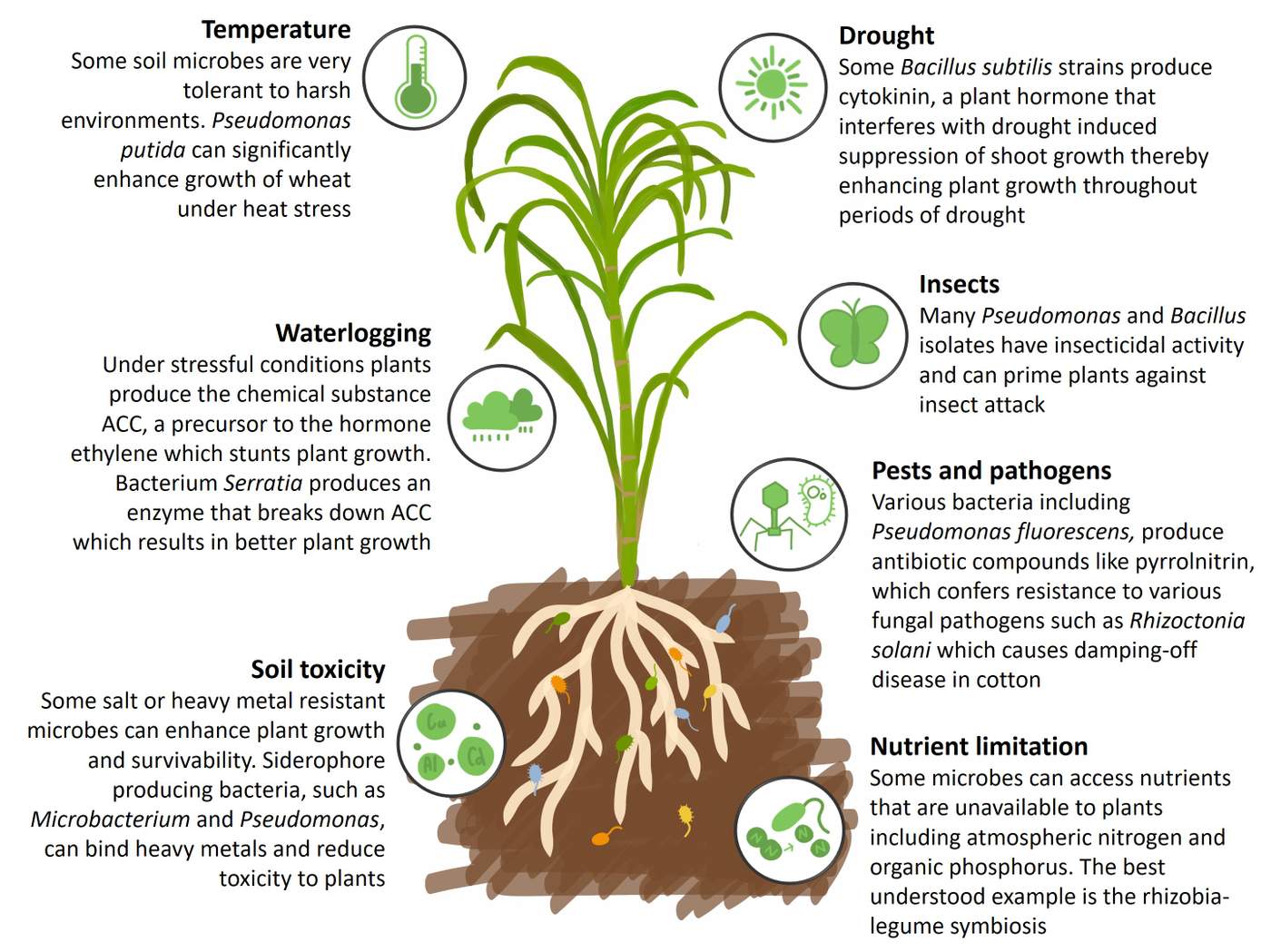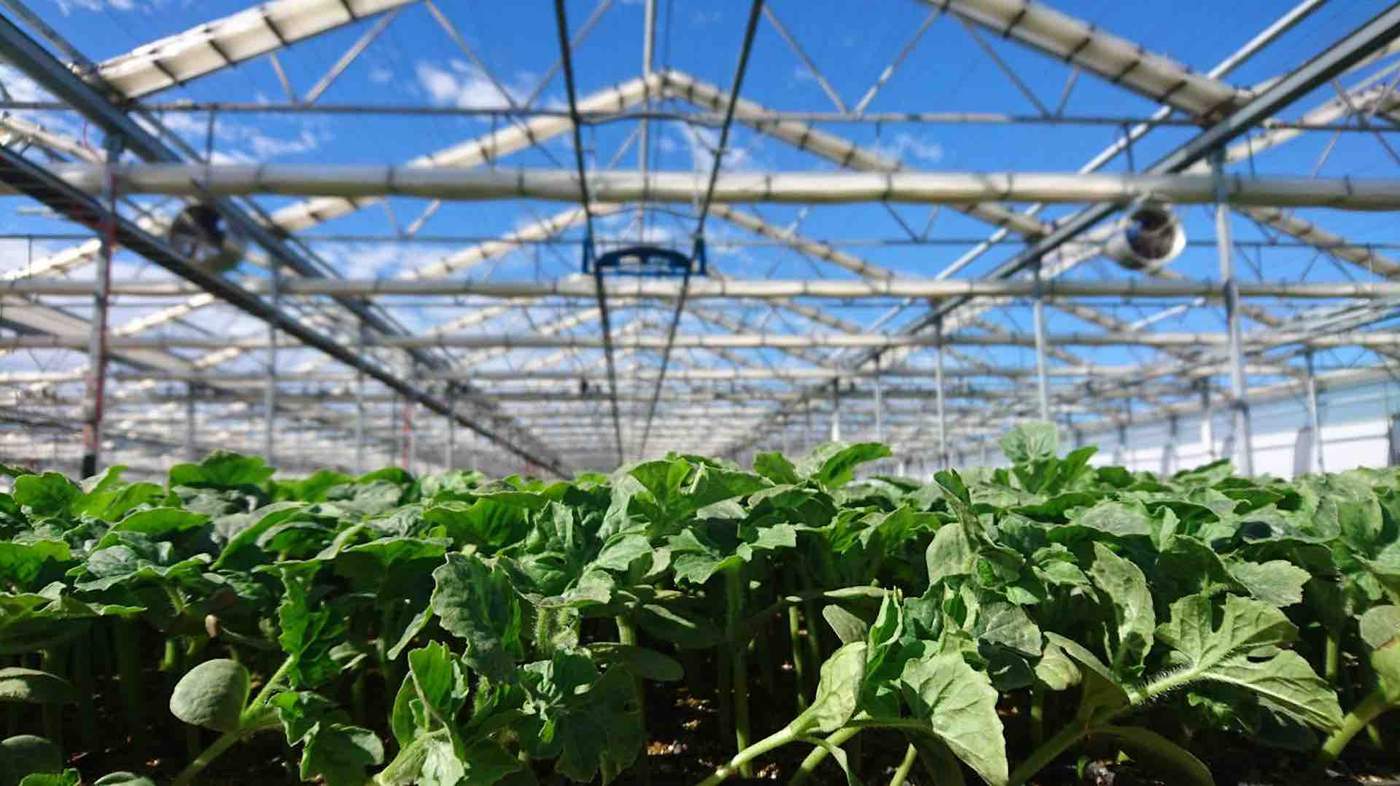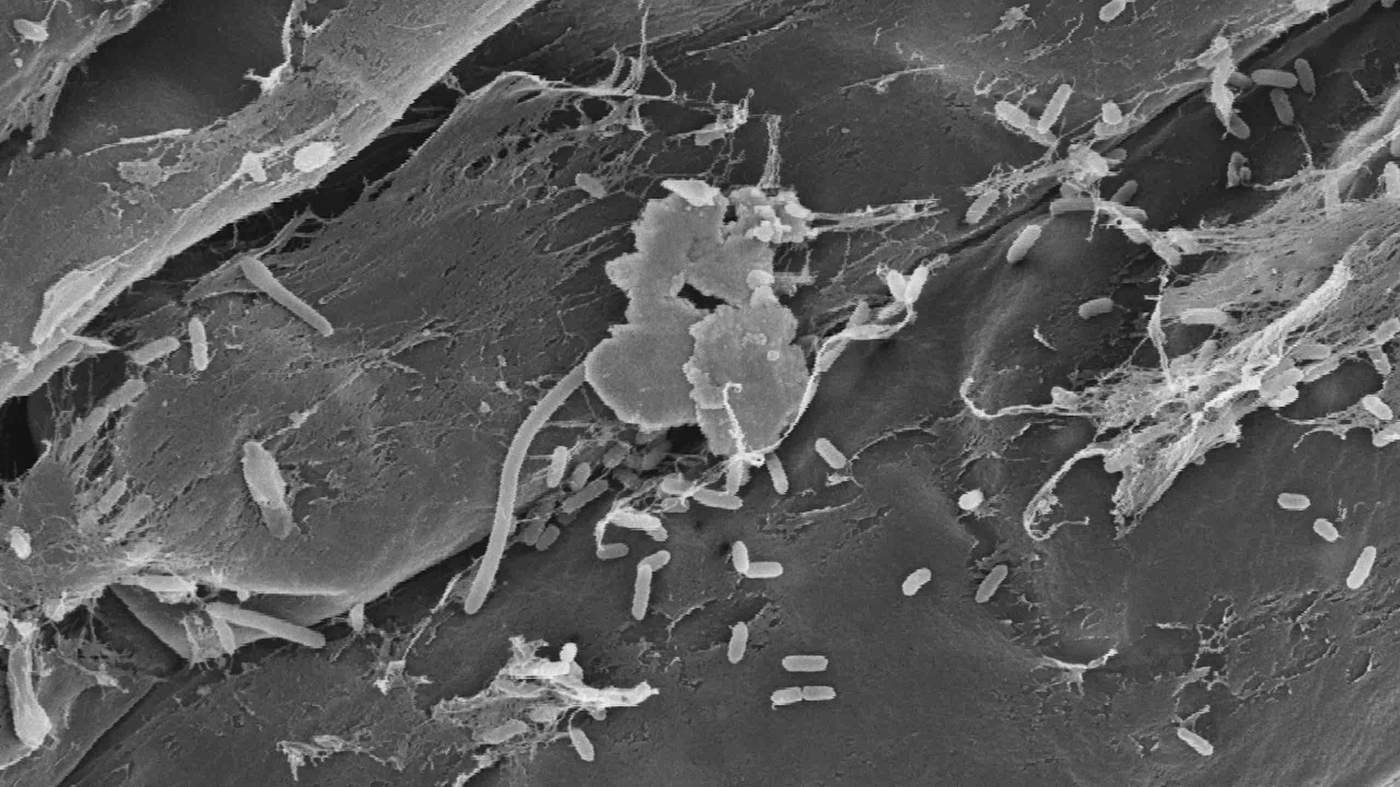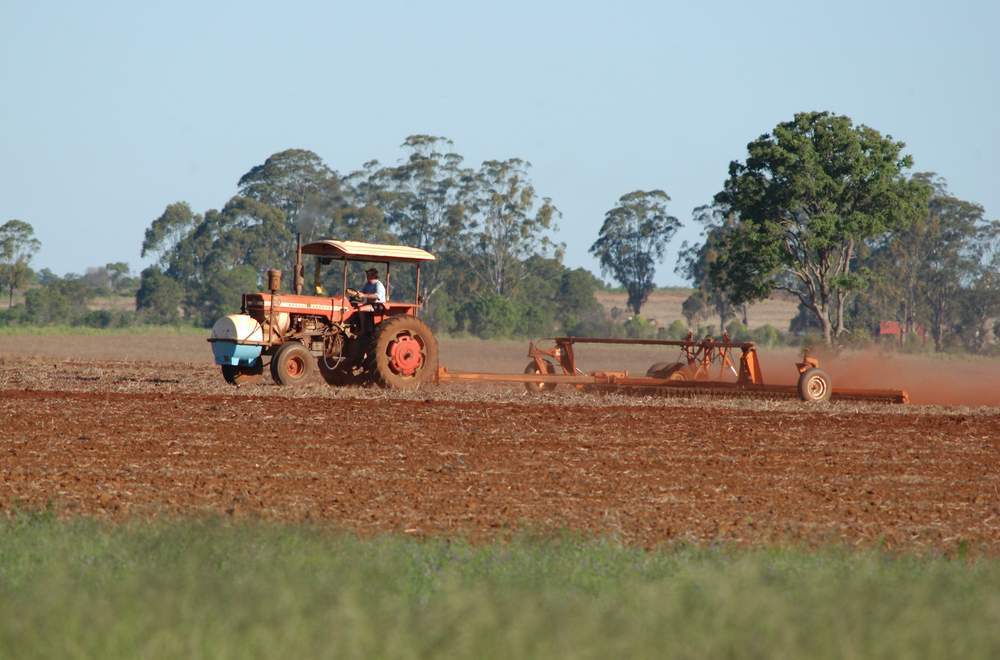Just as the human gut is teeming with bacteria, both good and bad, so too is the soil. And, like many of us turning to probiotics to feel better, a similar health revolution is happening in the agricultural industry.
Farmers now want to apply the same ‘good bacteria’ principle to plants, using ‘crop probiotics’ containing beneficial microbes – or, micro-organisms – to boost plant health and growth.
Beneficial bacteria and fungi can help plants defend themselves against pathogens, acquire essential resources, and become more resilient against stressors such as drought, heat, insects or other pests, soil toxicity and nutrient limitations.
Professor Susanne Schmidt from UQ’s School of Agriculture and Food Sciences believes this offers opportunities for agriculture.
"Crops that are supported by beneficial microbes require fewer agro-chemicals and produce more yield, a win-win situation for farmers, the environment and consumers," she says.
Australian Microbiome Initiative
UQ researchers have long been involved in a major project that is helping map the ecological community of microorganisms inhabiting Australia to create a unique, publicly accessible reference that will enable planners to better manage our environment. Known as the Australian Microbiome Initiative, the ever-growing database also aims to reduce Australia’s biosecurity risks and increase awareness of potential agricultural and mineral hazards and opportunities.

The project brings together experts from more than 40 organisations to provide data on the microbial diversity of specific sites including soils, coasts, and marine and freshwater locations.
The Australian Microbiome database will deliver searchable information on what potential microbiological resources exist and where they are located. Microbial communities in natural environments are vital to ecosystem and planetary functions, and their mapping will enable researchers to fill the gaps in their knowledge of microbial diversity and ecology.
Dr Paul Dennis from UQ’s School of Earth and Environmental Science is one such contributor to the project as he aims to understand the roles of microorganisms and their responses to environmental change.
“My research has taken me across the world, from mountains to oceans, with the aim of understanding the factors that determine the structure and functions of microbial communities at multiple spatio-temporal scales.
“I am particularly keen to develop strategies that facilitate the manipulation of microbial communities for environmental and commercial purposes, and improve our ability to predict the consequences of environmental change on ecosystem structure, function and stability.”
Professor Schmidt’s research is also being supported by the Australian Microbiome Initiative with previous research – led by Professor Phil Hugenholtz from UQ’s Australian Centre for Ecogenomics – showing that, from ferns to flowering plants, a core suite bacteria associates with the roots of plants. This raises hope that effective microbe formulations can be designed to benefit crops.
Further applications for microbes include ecological restoration, such as planting trees on degraded agricultural land that should be complemented by restoring the microbial communities of soils. A current Meat and Livestock Australia-funded project investigates how the productivity of Australia’s rangelands can be maintained with appropriate fire and grazing practices that encourage beneficial soil microbes.
How microbes help
Microbes live naturally in soil and are also included in many crop probiotics. When the right microbes are applied in the right conditions, crop probiotics can help plants overcome stresses and grow better.
Scientific evidence shows that beneficial bacteria can help crops – for example, Pseudomonas putida enhances the growth of wheat under heat stress, and some types of Bacillus subtilis produce cytokinin, a beneficial plant hormone that reduces the effect of drought-induced suppression of growth.
The most advanced use of beneficial microbes is Rhizobium bacteria that have been researched for over a century, and selected and formulated to boost the ability of legume crops to generate their own fertiliser from atmospheric nitrogen.

Confirmed benefits of crop probiotics on plants. Credit: Dr Shelby Berg.
Commercial products
In collaboration with sugarcane and horticultural industries, Professor Schmidt and her team have been testing commercial probiotics to evaluate their plant-growth promoting effects. Using DNA technology, they have tracked microbes from product to soil and crop, quantifying whether they have delivered any improvements.
They found that crop probiotics vary in their effect on crops exposed to different conditions, meaning more investigation is required to prove their usefulness for farmers.
“We’re searching for microbes that improve the performance of seedlings in the nursery and when planted into fields,” Professor Schmidt says.
“In recent experiments at Wide Bay Seedlings, one of Australia’s largest horticulture nurseries, three commercial probiotics and one of our candidate microbes did not improve seedling performance.
“We are currently investigating whether this is because microbes and plants do not interact, or whether the microbes are only helping seedlings when they are stressed. Understanding the mechanisms will inform the next steps towards effective products.”
When testing commercial probiotics at a North Queensland sugarcane farm in collaboration with Herbert Cane Productivity Services Limited (HCPSL), the team looked at whether the microbes can proliferate in soil or with sugarcane.
“None of the bacteria in the products took hold in soil or roots, but we saw some indirect effects, as the fungal community associated with sugarcane roots changed,” Professor Schmidt says.
“Whether this finding is meaningful can only be answered with further investigation. The field experiment was limited to one year, and crops receiving microbes did not grow better than the ones that didn’t.”
While benefits have been regularly reported in laboratory studies – and are promoted on the labels of products – the real-world outcome can be entirely different. The microbes in probiotics have to compete with resident microbes in soil and effectively communicate with the crop. There is no guarantee that probiotics tested overseas are effective in Australian climates, soils and crops.
“Unfortunately, probiotic products do not always deliver on their promises. Scientifically valid experimentation needs more emphasis – that is, in relevant settings, over several years and across multiple regions and soils,” Professor Schmidt says.
Following these experiments, the team is now taking a deeper look at the traits of microbes and their potential applications.
“We identified numerous microbes with beneficial traits and are testing them for their potential as crop probiotics. The second line of research is to work out how microbes can best be formulated into efficient products,” Professor Schmidt says.
"With human probiotics, encapsulation ensures that microbes pass the stomach and are safely released into our gut where they are active.
"We are exploring this principle for crop probiotics in collaboration with UQ material engineers."
“Overall, we believe that a more nuanced approach is required to make this technology work, with effective delivery of probiotics designed for particular crops and environments.”
Industry engagement is the next step.
“Research is now underway in our team to develop formulations of microbes into next-generation fertilisers that minimise pollution and enable the circular economy,” says Professor Schmidt.
“In collaboration with Meat & Livestock Australia, we are exploring naturally occurring, beneficial soil microbes to guide practices that ensure soil fertility, re-carbonise soils, and ensure long-term sustainability of grazing lands.
“We have also been testing commercial biostimulant products to determine their value for boosting sugarcane growth, but have detected no quantifiable benefit on yield to date. However, this may have been because with only a one-year trial, there was insufficient time to stimulate changes in soil biology to manifest measurable benefits.
“The tremendous diversity of microbes has to be understood for society to harness the benefits and must be backed up by science. Our interdisciplinary research is well positioned to achieve that for agriculture, in support of restoration of degraded lands and for combating climate change.”
Progress to date:
2015: The team publishes foundational research characterising bacterial and fungal communities in sugarcane roots and soils in Scientific Reports and Environmental Microbiology.
2016: The team tests commercial probiotics in a sugarcane field in collaboration with Herbert Cane Productivity Services Ltd., and at the Wide Bay Seedlings nursery.
2016: Foundational research is published by lead author Dr Chany Paungfoo-Lonhienne in the Scientific Reports article ‘Cross talk between sugarcane and a plant-growth promoting Burkholderia species’.
2016: The team participates in the Australia-wide ‘Biomes of Australian Soils Environment soil microbial diversity database’ published in Gigascience.
2017: The Australian Microbiome Initiative (AMI) is established, based on an amalgamation of the Biome of Australian Soil Environments and Marine Microbes projects.
April 2017: The team publishes article in The Conversation expressing concern about crop probiotics in Australia.
May 2017: Led by Dr Richard Brackin, the team publishes article ‘Soil biological health – what is it and how can we improve it?’ in Proceedings of the Australian Society of Sugar Cane Technology.
August 2017: Led by UQ microbiologist Professor Phil Hugenholtz, article is published in Nature Communications revealing that plants have evolved to share a core microbiome.
2019: Effects of commercial microbial stimulants on soil and root microbial communities and yield of sugarcane article is published.
October 2019: AMI approves metagenomics project supporting UQ-led research on sustainable grazing in northern rangelands and beneficial soil microbes that tolerate extreme heat, drought and bushfire.
In progress: The team is further developing publications outlining the results of probiotics research, while initial funding received (UQ, Wide Bay Seedlings) will also advance knowledge for a comprehensive project to develop effective product/s and delivery technology.
(Header video credit: iStock; sugarcane and Wide Bay Seedlings nursery photos: Mrs Shelby Berg; Tractor shot: UQ Images; Words by Jai Morton and Suzanne Parker)



